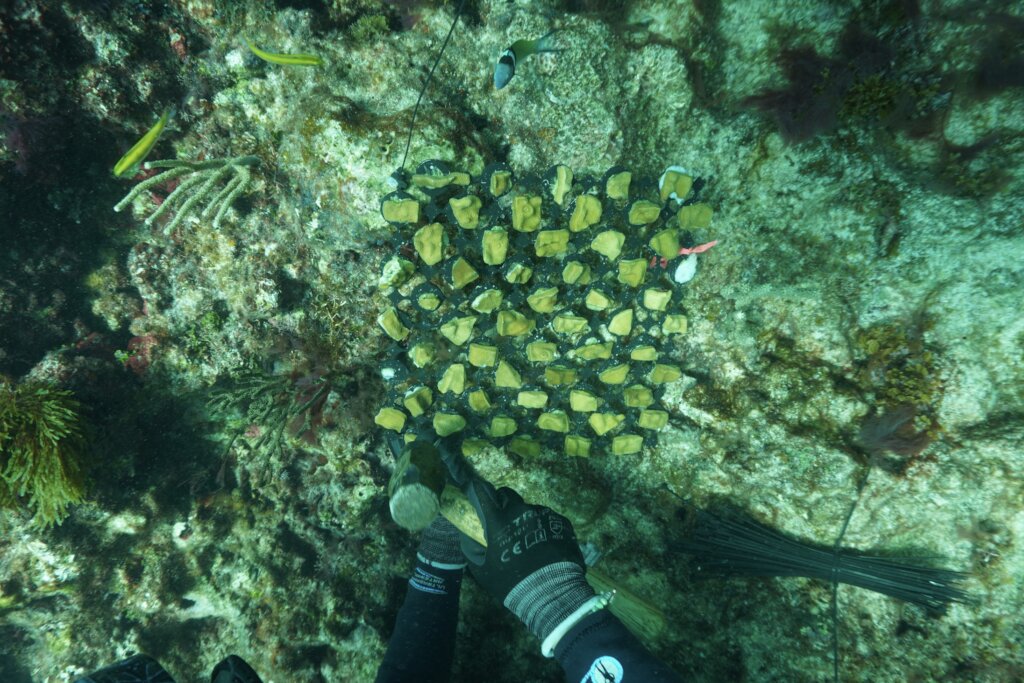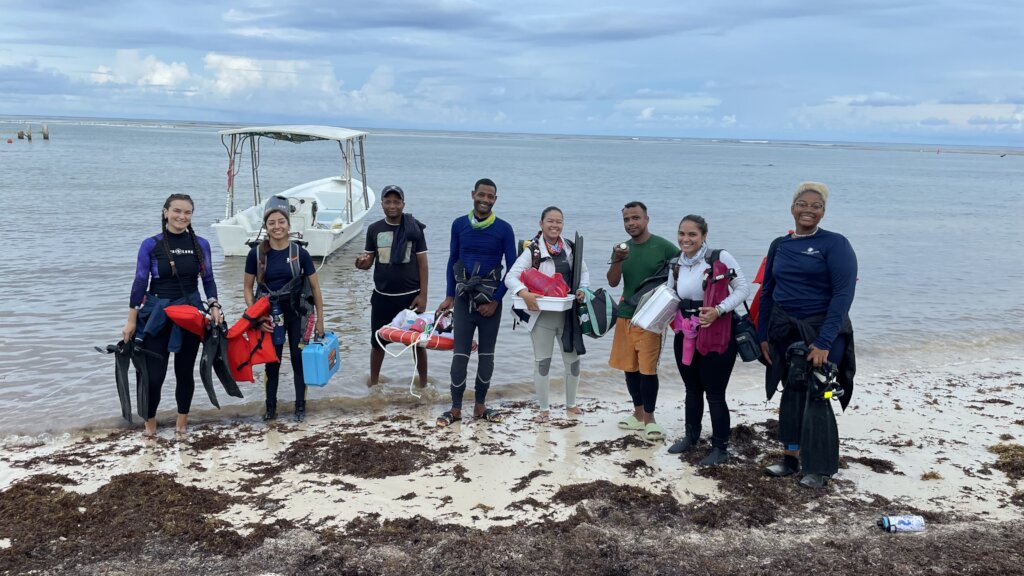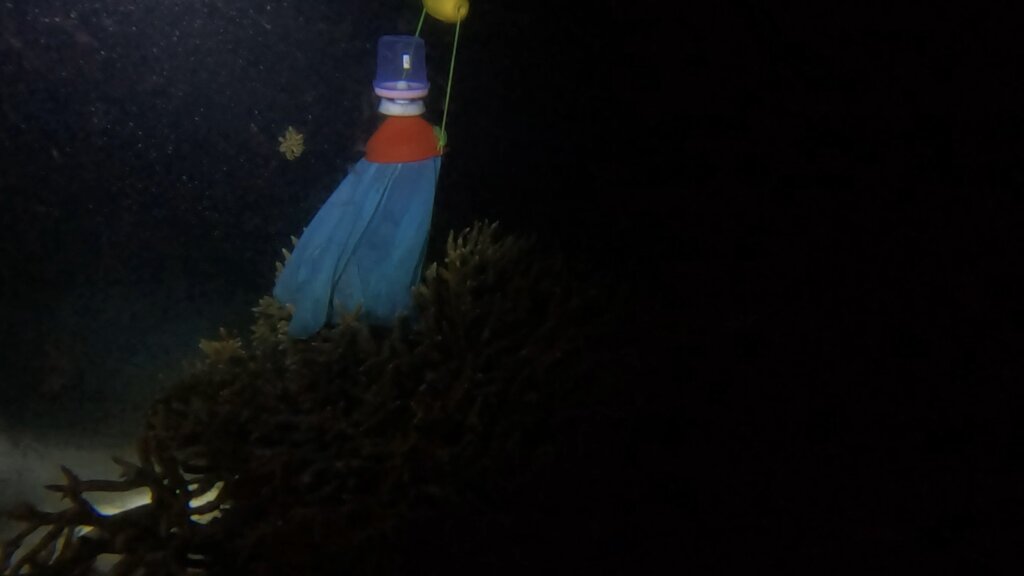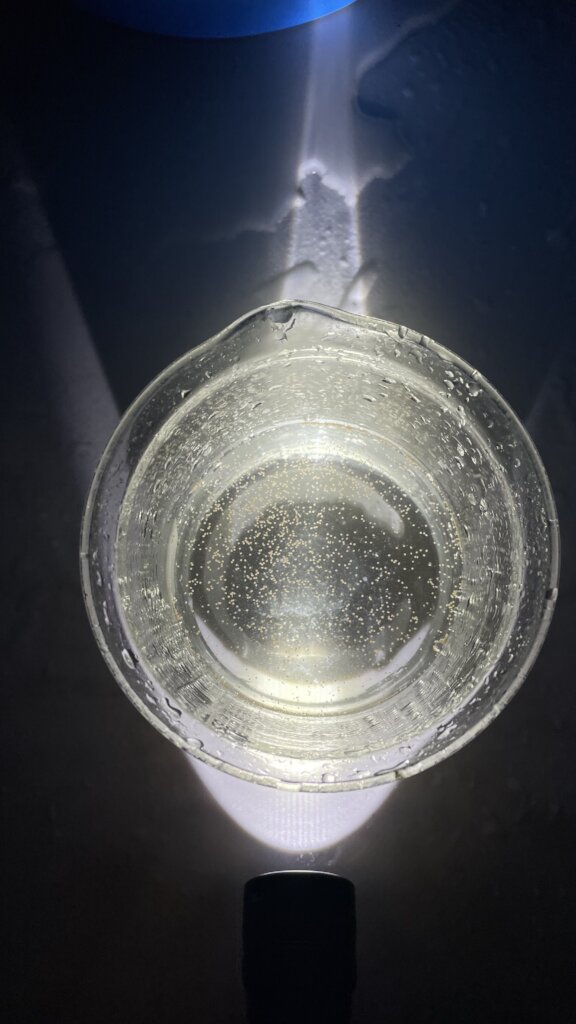By Rebecca Garcia | Scientific Coordinator
Grupo Puntacana Foundation has dedicated this period to implementing new activities to upscale our restoration efforts, including expanding our outplanting micro-fragments efforts and monitoring coral spawning. The first massive outplant of micro-fragments took place with a total of 9 divers, 5 snorkelers and 3 boat captains. A citizen science event in which 1,570 micro-fragments of 8 different species were placed back to the reef (Image 1). Biodegradable plastic nets created by the company Sea Foundry were used for the first time in order to outplant with less plastic and in a more efficient manner.
Our restoration area is also being monitored with the use of 3D imagery in order to measure coral growth rates and restoration success over the years. Additionally, in June and August of 2023 the team monitored spawning of elkhorn (Acropora palmata) and staghorn (Acropora cervicornis) corals. The team dove every night until midnight in order to detect spawning and collect gametes (Image 2). Local fishermen who have collaborated with FGPC for many years created meshes with umbrellas to collect coral spawns, making an innovative structure that can be bought and built locally (Image 3).
After monitoring, we collected gametes of elkhorn and staghorn coral and began assisted fertilization in the laboratory (Image 4). A positive observation was that our nurseries with staghorn corals are spawning, which increases the larval pool of the area. The night dives helped us achieve our goal of making a calendar for coral reproduction events that we can use as a guide next year and have more precise dates for collection. We are implementing sexual and asexual reproduction of coral species to have a greater genetic diversity for restoring Punta Cana’s reefs.
Project reports on GlobalGiving are posted directly to globalgiving.org by Project Leaders as they are completed, generally every 3-4 months. To protect the integrity of these documents, GlobalGiving does not alter them; therefore you may find some language or formatting issues.
If you donate to this project or have donated to this project, you can receive an email when this project posts a report. You can also subscribe for reports without donating.
Support this important cause by creating a personalized fundraising page.
Start a Fundraiser


